Clinical Advisory Committee
The Clinical Advisory Committee (CAC) evaluates the submitted Connection Applications and approves genes which will be functionally analysed. Committee members are:
RDMM-Europe
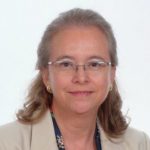
Eva Bermejo-Sanchez


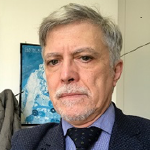

Olaf Riess
University of Tübingen, Tübingen, Germany
Olaf Riess is full professor for Medical Genetics, director of the Institute of Medical Genetics and Applied Genomics, and founder and acting director of the Rare Disease Center Tübingen. He has more than 20 years of experience in clinical genetics and research of genetically caused disorders. Main focus on neurodegenerative and syndromal diseases; both from the clinical as well as from the basic research perspective. Special focus on genetically inherited movement disorders such as ataxias, Huntington’s disease, Parkinson’s disease, and dystonia, and on the application of genomic HTP technology in the clinical practise. To faster transfer genomic medicine into university settings he is co-founder of the Center for personalized medicine of the University of Tübingen.
He currently is and has been coordinator of numerous international, European and national funded consortia such as EUROSCA, MEFOPA, TECHGENE, RATstream, NeurOmics, and Solve-RD. Olaf Riess is an active member of three European Reference Networks (ERNs) serves in numerous advisory boards such as the German initiative for Rare Diseases (NAMSE), the EFSN task force on spinocerebellar ataxias, the executive member of the Ataxia study group (ASG), and as a board member of the International Rare Disease Research Consortium IRDiRC (Diagnostics Scientific Committee).
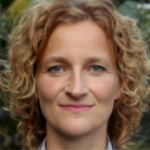
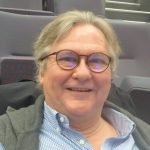
Scientific Advisory Committee
The Scientific Advisory Committee (SAC) reviews the submitted applications from the Model Organism Investigators and makes a selection of best matches to the Connection Application. Committee members are:

Han Brunner
Radboud University Medical Centre, Nijmegen, the Netherlands
Han Brunner is full professor and head of the department of Human Genetics at Nijmegen University Hospital and at Maastricht University Medical Center, in the Netherlands.
Han Brunner discovered a large number of disease genes, by applying cutting- technologies (genomic microarrays, exome sequencing, and whole genome sequencing) to understand genetic diseases. Much of his work is on neurodevelopmental conditions such as intellectual disability and abnormal behaviour. His work has established that in non-consanguineous populations, the major cause of intellectual disability lies in spontaneous new mutations. The work of his group has further shown that in tertiary pediatric neurology practice, the exome-first approach is cost-effective and yields superior diagnostic yield to conventional clinician-driven examination.
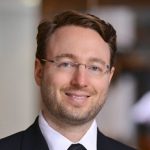
Philippe Campeau
University of Montreal, Montreal, Canada
Dr. Campeau is a medical geneticist at the Sainte-Justine Hospital affiliated with the University of Montreal, and the Shriners Hospital affiliated with McGill University. He trained at McGill ('03-'08) and the Baylor College of Medcine ('08-'13). His lab focuses on studying new skeletal dysplasias (FN1 gene), rare forms of epilepsy (DOORS syndrome) and chromatin remodeling disorders (CHD3). His group identifies disease-causing genes, understands the pathological basis of disease in cells and mice, and aims to improve the management of children affected by these conditions. They have clinical studies on Morquio disease, Multiple Osteochondromas and Achondroplasia.

Paul Lasko
McGill University, Montreal, Canada
Prof. Paul Lasko received his A. B. from Harvard and his Ph. D. from the Massachusetts Institute of Technology, and joined McGill University in 1990 after a postdoctoral period at the University of Cambridge. He is presently a James McGill Professor in the Department of Biology. He has authored over 130 research papers, mostly in genetics and developmental biology in the fruit fly Drosophila. He received the Prix Armand-Frappier from the Government of Quebec in 2014 for his work in research and research administration, and was elected a Fellow of the Royal Society of Canada in 2016. From 2010-18 Prof. Lasko served as Scientific Director of the CIHR Institute of Genetics, where he oversaw the Institute’s strategic research funding initiatives, many of which involved fostering international partnerships including the Canadian Rare Disease Models and Mechanisms Network. From 2012-15 he served as Chair of the Executive Committee of the International Rare Diseases Research Consortium. He is a member of the executive boards of the Undiagnosed Diseases Network International and INFRAFRONTIER 2020.

Olaf Riess
University of Tübingen, Tübingen, Germany
Olaf Riess is full professor for Medical Genetics, director of the Institute of Medical Genetics and Applied Genomics, and founder and acting director of the Rare Disease Center Tübingen. He has more than 20 years of experience in clinical genetics and research of genetically caused disorders. Main focus on neurodegenerative and syndromal diseases; both from the clinical as well as from the basic research perspective. Special focus on genetically inherited movement disorders such as ataxias, Huntington’s disease, Parkinson’s disease, and dystonia, and on the application of genomic HTP technology in the clinical practise. To faster transfer genomic medicine into university settings he is co-founder of the Center for personalized medicine of the University of Tübingen.
He currently is and has been coordinator of numerous international, European and national funded consortia such as EUROSCA, MEFOPA, TECHGENE, RATstream, NeurOmics, and Solve-RD. Olaf Riess is an active member of three European Reference Networks (ERNs) serves in numerous advisory boards such as the German initiative for Rare Diseases (NAMSE), the EFSN task force on spinocerebellar ataxias, the executive member of the Ataxia study group (ASG), and as a board member of the International Rare Disease Research Consortium IRDiRC (Diagnostics Scientific Committee).
